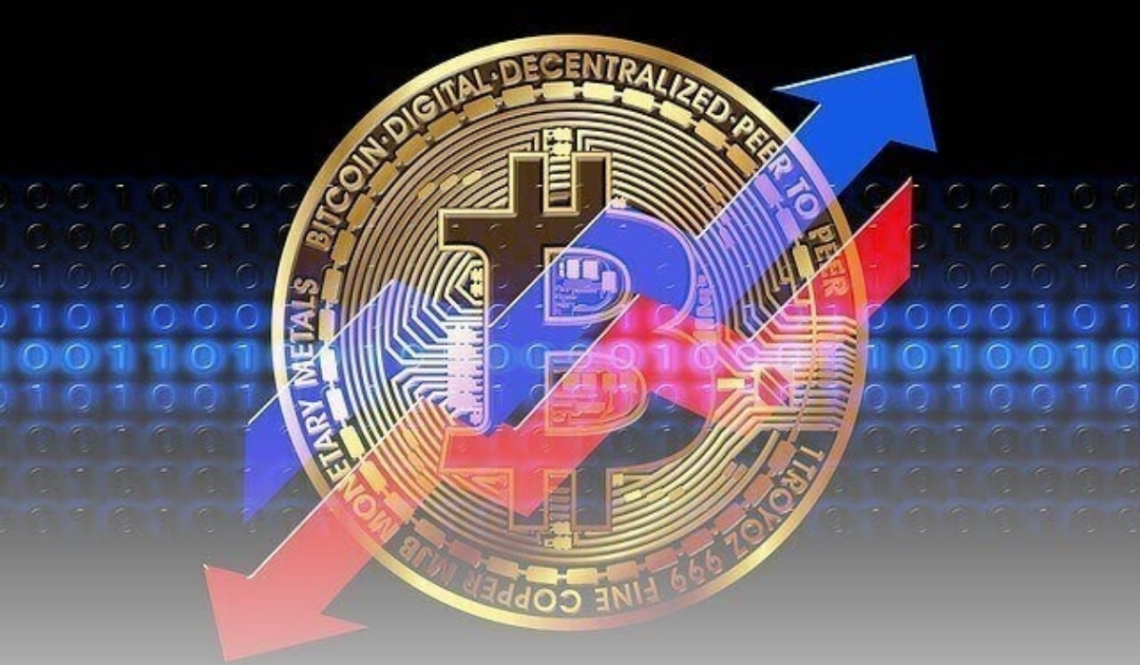- Inflation fuelled the prospect that the U.S. dollar, with time, might lose its purchasing power, coaxing the market to look for alternatives, crypto space.
- Bitcoin’s all-time high, surpassing $64,500, was witnessed post the confirmed inflation growth.
- The Federal Reserve believes inflation is temporary and does not plan to raise rates until 2024.
The U.S. market is facing post-pandemic inflation, rates exceeding the market forecasts. And, of course, it affects the crypto market. But are the effects in its favor? There can’t be a straightforward answer, though! Fearing the dollar’s receding purchasing power, Bitcoin, with its limited supply cap of 21 million tokens, efficiently became a better choice for many. Still, the accompanying changes won’t necessarily be benefitting it too.
Market Inflation Overview: shifting economy, shifts to crypto
Dow Jones Forecast estimated the consumer prices index (CPI) to have a monthly rise of 0.5% and that of a year (from March 2020) to be 2.5%. But March stats reveal, the index showed a monthly increment of 0.6%, and the yearly increase, which was just 1.7% in February, rose to 2.6% for March. The chief US financial economist at Oxford Economics, Kathy Bostjancic, predicts inflation might rise to 3.5% this year. And this inflation has had a significant impact on the crypto space.
To cushion the U.S. economy from the pandemic-led recession, the Federal Reserve lowered the benchmark lending rates close to zero while committing to an unlimited bond-buying program. Consequently, it fueled the prospect that the U.S. Dollar, with time, would lose its purchasing power, which led cryptocurrency to its phenomenal post-mid-March crash progress.
Inflation directed the market in Bitcoin’s favour
Bitcoin (BTC), or cryptocurrency, is seen as a hedge against inflation and ongoing currency debasement. Naturally, inflation prompted investors to increase their exposure in the Bitcoin market. Even Tesla and MicroStrategy included bitcoins worth billions of dollars to their otherwise fiat-based investments.
This increased institutional demand for BTC further attracted mainstream financial services. Morgan Stanley and Goldman Sachs launched crypto-based investment services, and also the global payment giant PayPal included Bitcoin and altcoin trade on its platform.
Even Bitcoin’s all-time high, surpassing $64,500, succeeded the confirmed inflation growth.
Accompanying policy change is a crypto-threat
However, inflation rates rising beyond the 2% threshold have become a significant issue and might coax the Federal Reserve to tighten monetary policy, which won’t favor risk assets. The Federal Reserve Chairman, Jerome Powell, doesn’t seem threatened by this inflation. He views the higher inflation as temporary, not enough a threat for the U.S. central bank to alter its record-low interest rate policies.
Investors are still Iffy
Even though the central bank stated that it doesn’t wish to raise rates until 2024, investors are still iffy. They are still reading the market to learn whether the rising prices are short-term or here to stay, just waiting to react accordingly. After all, with a $120 billion monthly purchase of government bonds and mortgage-backed securities, for how long could the Federal Reserve be expected to continue its ultra-accommodative stance.

Andrew is a blockchain developer who developed his interest in cryptocurrencies while pursuing his post-graduation major in blockchain development. He is a keen observer of details and shares his passion for writing, along with coding. His backend knowledge about blockchain helps him give a unique perspective to his writing skills, and a reliable craft at explaining the concepts such as blockchain programming, languages and token minting. He also frequently shares technical details and performance indicators of ICOs and IDOs.


 Home
Home News
News










